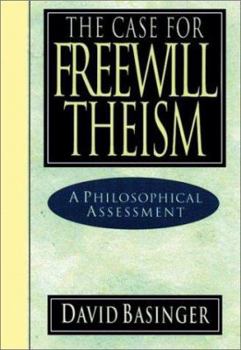The Case for Freewill Theism: A Philosophical Assessment
Can God intervene in this world?If so, to what extent can he intervene?If God intervenes, can we initiate such intervention by prayer?And if God can intervene, why is evil so persistent?Taking up such practical and profound questions, David Basinger (a coauthor of the much-discussed book The Openness of God) offers a probing philosophical examination of freewill theism. This controversial view, put forward most prominently by Clark Pinnock, Richard...
Format:Paperback
Language:English
ISBN:0830818766
ISBN13:9780830818761
Release Date:January 1996
Publisher:InterVarsity Press
Length:154 Pages
Weight:0.45 lbs.
Dimensions:0.5" x 5.5" x 8.3"
Customer Reviews
1 rating
David Basinger Cogently Defends a Viable Variety of Theism
Published by Thriftbooks.com User , 24 years ago
David Basinger offers his readers an incisive and well-argued defense of basic freewill theism, generally, and open theism more specifically. He cogently argues that if human beings possess libertarian freedom, then God's providential activity in the world must be risky. He goes on to show that advocates of simple foreknowledge, middle knowledge, and present knowledge all share a common commitment to an understanding of God's relationship to the world that is more dynamic and responsive than what one finds with theological determinism while avoiding the excesses of process theism. But not all varities of freewill theism are equally promising. Basinger shows that advocates of simple foreknowledge must admit that such a view of omniscience is providentially useless. Basinger suggests that a rejection of foreknowledge in favor of present knowledge is more promising for those who want to make adequate room for God's providential activity in the world. No less controversial is his argument to the effect that those who hold to middle knowledge (Molinists) must accept that God does take risks. Against both William Hasker (who is also an open theist) and William Craig (a Molinist) Basinger argues that if God has middle knowledge, then when using it God cannot ensure that a given outcome will occur in a given possible world that God chooses. This follows because of the nature of libertarian freedom. Basinger also has stimulating chapters on the problem of evil, divine benevolence, and petitionary prayer. This is probably the best work on this topic that is accessible to those new to the debate over divine and human action. But it will also be of great interest to intermediate and advanced readers. (For a more detailed review of Basinger's work, see my review of it published in *Philosophia Christi*, vol. 20:2 (Winter 1997)).





